Washington waits for Trump to weigh in on shutdown deal
CNN
Countdown to another government shutdown
By Meg Wagner and Brian Ries, CNN
Updated 1 hr 16 min ago1:47 p.m. ET, February 12, 2019
Partial government shutdown could start in
3 days 8 hours 55 minutes 1 second
Trump: I don't think you're going to see a shutdown
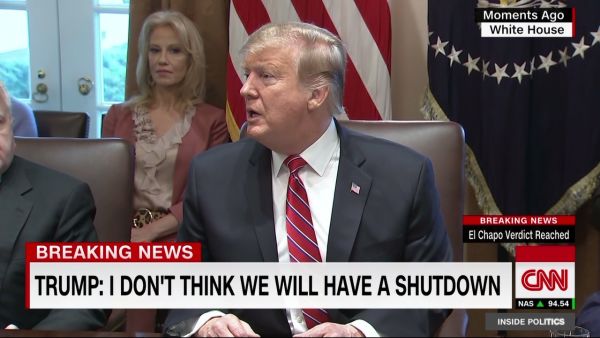
President Trump, speaking to reporters during a Cabinet meeting at the White House, said he doesn't expect another shutdown.
He added, however, if there is one, it's the "Democrats' fault."
Congressional negotiators say they have reached an agreement in principle to avert a partial government shutdown at the end of this week.
It's unclear if Trump will sign the deal.
Trump says he's not happy about the border deal
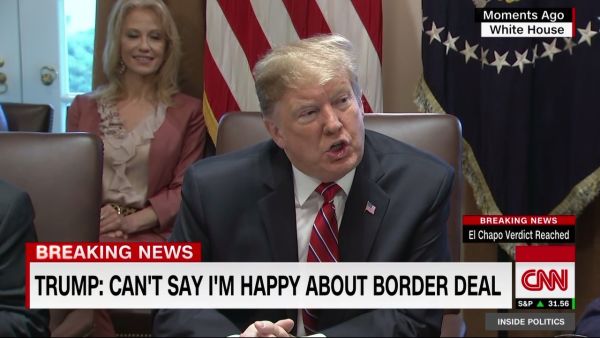
President Trump, answering a reporter's question if he'd sign the newly reached border deal, said he wasn't happy with it.
"I'm not happy about it, it's not enough, it's not doing the trick," Trump said, before adding he would add "things to it," though didn't specify what.
"I can tell you that, am I happy, at first glance? I just got to see it. The answer is no, I'm not. I'm not happy," he said.
Lawmakers could be working on the deal right up until Friday's deadline
From CNN's Phil Mattingly
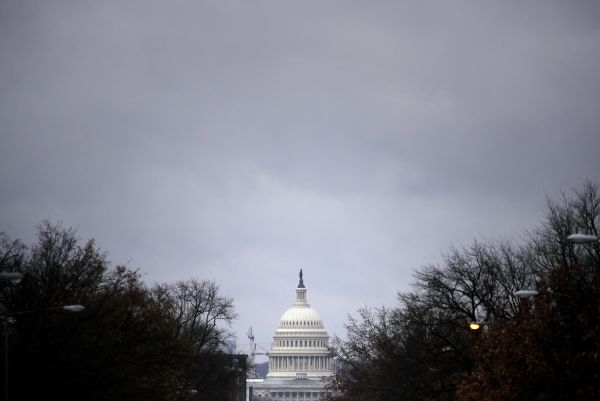
Multiple people involved with the deal reached last night said it’s likely the bill won’t be posted publicly until Wednesday.
Why that matters: That would put lawmakers right up against the deadline, given the 72-hour rulein the House (which calls for the text of a bill to be public for 72 hours before the House votes on it). Lawmakers have until Friday to pass a deal to fund the government — and President Trump must sign it.
Keep in mind: When there’s a deal, lawmakers are far more willing to consider a continuing resolution for a day or two to allow for the Congressional procedural machinations to work out, but lawmakers still want to try and get it all wrapped up by Friday.
With all that said, this all comes down to Trump: There will be a lot that happens in the next few days between the legislation actually posting, leadership working to get their members and votes in line and powerful outside groups on both sides weighting in for or against the deal. But the only thing that really matters right now is how President Trump comes down on the deal. So far, he hasn't said where he stands.
4 ways Trump could use executive authority to fund the border wall
From CNN's politics team
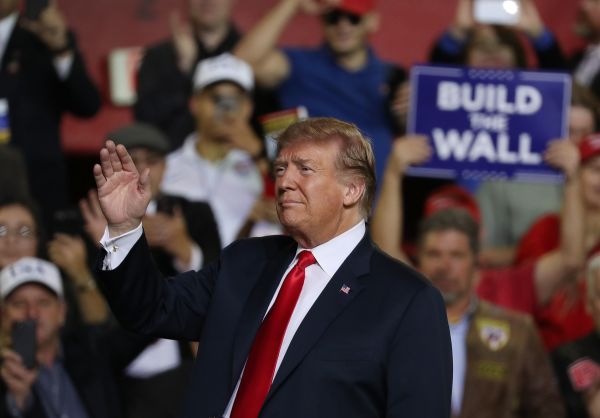
President Trump is continuing to weigh his options after congressional negotiators presented an agreement with only $1.375 billion in border barrier funds.
White House officials have a roster of options they have been weighing that would employ the President's executive authority to secure money for a border wall. Not all would require declaring a national emergency.
Those options include...
Accessing Treasury forfeiture funds
- How much money? About $680 million
- National emergency? This option would not require the President to declare a national emergency.
- How would it work? After the Office of Management and Budget reviews the order, Treasury and DHS would both notify Congress then wait 15 days before the funds can be obligated. Acquisition of land is allowed under this option.
Using USC 284 to divert some Pentagon funds for counter-narcotics
- How much money? An estimated $700 million
- National emergency? It may not require the President to declare a national emergency, according to a Congressional Research Service legal report.
- How would it work? The Department of Homeland Security must exercise a waiver to transfer counter-drug funds to construct fencing to block drug smuggling. DHS would also ask the Department of Defense to assist after identifying a location where a fence is needed to block drug smuggling corridor.
Using USC 2808 to gain access to military construction funds
- How much money? About $3.6 billion
- National emergency? This option would require the President to declare a national emergency. It would also require the use of the military.
- How would it work? The President would declare border protection a Department of Defense mission.
Using Army Corps civil works funds under USC 2293
- How much money? An estimated $3 billion.
- National emergency? It may require the President to declare a national emergency, but could also be used without one, according to a legal report.
- How would it work? The Secretary of the Army may stop or defer Army civil works projects and apply funds to help build civil defense projects essential for the national defense (Note: The Secretary of the Army makes the final determination if essential to national defense) The unspent funds that could be used are now designated to go toward Army Corps of Engineers projects to repair infrastructure damaged by natural disasters.
It's not clear which combination of these actions the President might use, and the topic has been under debate for weeks. The President has held nearly daily meetings with senior advisers and others to discuss his options.
The estimates for how much each option could garner have also been under debate. =
Democratic senator: "We need to get this thing done"
From CNN's Sunlen Serfaty and Liz Landers
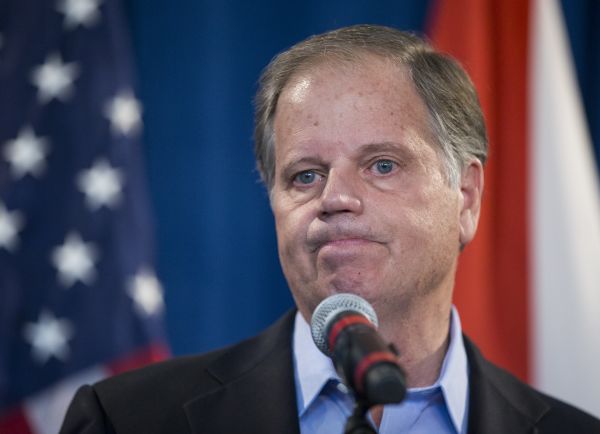
Democratic senators Joe Manchin and Doug Jones said they are optimistic about the agreement.
“We need to get this thing done,” Jones told reporters this morning.
Jones called another shutdown “devastating” and should not be on the table. He added that he's “real optimistic” about this new deal.
CNN then asked about the possibility that Trump could take executive action.
Right after Jones spoke to reporters, Senator Manchin popped out and said he thinks Trump should sign the funding bill.
He chuckled when asked about the potential that Trump could use money from other places to build his wall.
“As a former governor, we always look for extra money. That doesn’t bother me a whole lot.” Manchin said.
Mitch McConnell and Chuck Schumer are cautiously optimistic about the deal
From CNN's Ted Barrett
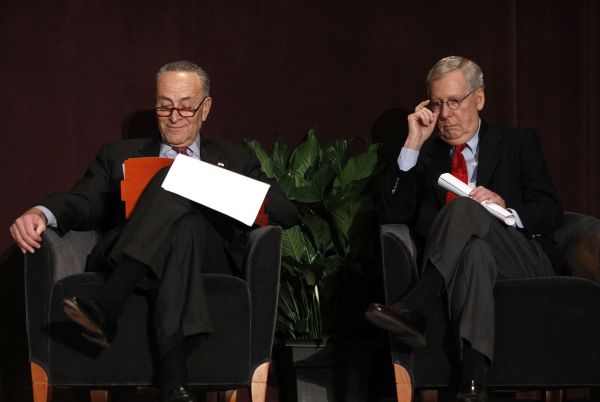
In their opening floor remarks Tuesday, top Senate leaders were upbeat — but still cautious — about the “tentative deal” or “agreement in principle,” as they described it, that was reached by negotiators late Monday to fund more border security and prevent a government shutdown.
Senate Minority Leader Chuck Schumer repeatedly urged President Trump to sign the bill, but Senate Majority Leader Mitch McConnell made no mention of the President and only said he hopes to move it through the Senate in “short order.”
McConnell noted that in order to get the deal, Democrats backed off their “extreme position” on detention beds and he praised the proposal because it would fund “miles of new border barriers.”
“It provides new funds for miles of new border barriers. And it completes all seven outstanding appropriations bills, so Congress can complete a funding process for all the outstanding parts of the federal government with predictability and certainty,” McConnell said. “As we speak, our colleagues are working hard to produce full legislative text. I look forward to reviewing the full text as soon as possible and hope the Senate can act on this legislation in short order.”
Meanwhile, Schumer said “months of shutdown politics must come to an end” with this agreement.
“We now have a bipartisan proposal to accomplish our goals to better secure the border and avoid another senseless government shutdown. I don’t know the details, but the parameters are good,” Schumer said. “We must not have a rerun of what happened a few months back where legislators, Democrats and Republicans, House and Senate, agreed and President Trump pulled the rug out from under the agreement and caused a shutdown.”end quote from:
https://www.cnn.com/politics/live-news/government-shutdown-february-2019/h_d26b560d54861c98aa40288bcc578f2e

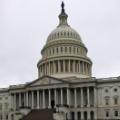





No comments:
Post a Comment